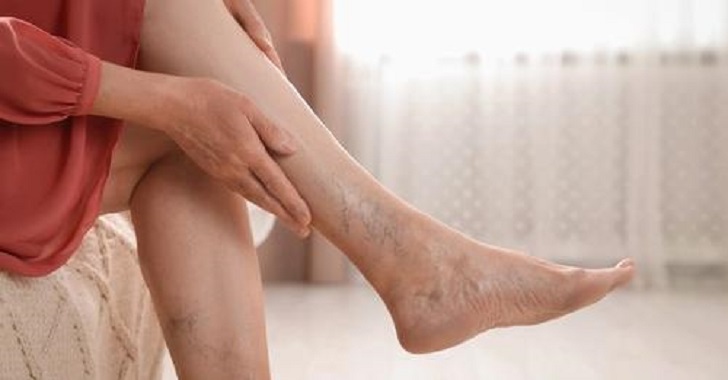If you’re wondering, “Why do my legs feel heavy and tired?” You’re not alone. Many people experience this sensation, ranging from mild discomfort to more severe symptoms. Heavy and tired legs can result from several different underlying issues, some of which are easily managed, while others might require medical attention. Recognizing the cause is essential in finding effective relief and treatment.
Why Do My Legs Feel Heavy and Tired? 7 Common Reasons
1. Varicose Veins
Varicose veins are a common cause of heavy and tired legs. These swollen, twisted veins develop when blood circulation worsens, particularly in the legs. The veins lose elasticity, leading to blood pooling in the lower extremities. This pressure makes the legs feel heavy and achy, especially after standing for long periods. Risk factors include aging, obesity, pregnancy, and extended standing or sitting jobs.

2. Chronic Venous Insufficiency (CVI)
Chronic venous insufficiency (CVI) occurs when the veins in the legs fail to send blood back to the heart effectively. When the one-way valves in the veins weaken, blood struggles to flow upward, leading to symptoms like tired, swollen legs. Over time, CVI can cause visible veins and spider veins, further complicating the condition. People who stand for long periods or have a history of venous injury are at higher risk of developing CVI.
3. Overtraining and Muscle Fatigue
If you’re physically active, overtraining could be behind your heavy and tired legs. When muscles are pushed to their limits without enough time to rest and recover, they become fatigued, leading to sluggish, weak, or heavy legs. Athletes and fitness enthusiasts who frequently engage in intense workouts should ensure they balance exercise with adequate rest to prevent overuse injuries and chronic muscle fatigue.
4. Restless Legs Syndrome (RLS)
Restless legs syndrome is a neurological condition that triggers an uncontrollable urge to move the legs. The movement can relieve sensations like tingling, tension, or even heaviness. RLS typically worsens at night, disrupting sleep and leaving individuals feeling more fatigued the next day. Although the cause is not fully understood, dopamine, a neurotransmitter that controls muscle movement, is believed to play a significant role.
5. Peripheral Arterial Disease (PAD)
Peripheral arterial disease occurs when fat deposits build up in the walls of the arteries, restricting blood flow. PAD often affects the legs, leading to symptoms like aching, cramping, and heaviness. Over time, reduced circulation can cause more severe complications. Risk factors include high cholesterol, smoking, diabetes, and high blood pressure. PAD requires proper management to prevent further cardiovascular problems.
6. Lipedema and Lymphedema
Lipedema and lymphedema are conditions characterized by swelling in the legs, often causing them to feel heavy and painful. Lipedema involves the abnormal accumulation of fat, while lymphedema occurs due to a buildup of lymph fluid. Both conditions can cause discomfort and lead to long-term complications if left untreated. They can also make movement more difficult, contributing to feelings of fatigue and heaviness in the legs.
7. Hormonal Changes and Pregnancy
Pregnancy and hormonal changes can also cause the legs to feel heavy. This is especially common in the later stages of pregnancy when fluid retention increases and blood flow can be sluggish. The added weight of carrying a baby and the body’s hormonal shifts can create pressure in the veins, leading to heaviness, swelling, and discomfort. These symptoms typically subside after pregnancy but can be managed with home remedies during pregnancy.
Effective Remedies for Heavy and Tired Legs
Understanding why your legs feel heavy and tired is the first step toward relief. While medical treatment may be necessary for certain conditions, several remedies can help alleviate the discomfort.
Elevate Your Legs
Elevating your legs above heart level helps improve blood circulation and reduces the pressure on your veins. This simple practice can relieve heaviness and promote better blood flow, especially after long periods of standing or sitting.
Stay Active
Regular physical activity is essential to keep the blood flowing and strengthen the muscles in your legs. Activities like walking, cycling, and swimming can help reduce the sensation of heaviness by boosting circulation. Just be cautious to avoid overtraining, which can worsen fatigue.

Wear Compression Stockings
Compression stockings are often recommended for individuals with varicose veins or chronic venous insufficiency. These specialized garments help promote blood flow and prevent pooling in the legs, significantly reducing the feeling of heaviness and tiredness.
Monitor Salt Intake
Reducing salt in your diet can help manage water retention, which often contributes to swelling and the sensation of heavy legs. Be mindful of sodium in processed foods, and try to incorporate more fresh, whole foods into your diet to support overall vascular health.
Stay Hydrated
Dehydration can also contribute to leg cramps and a feeling of sluggishness. Drink plenty of water throughout the day to keep your body hydrated, which can help prevent muscle cramps and reduce leg fatigue.
When to Seek Medical Attention
While many causes of heavy and tired legs can be managed with lifestyle changes and home remedies, it’s important to seek medical advice if the symptoms persist. If you experience leg heaviness, swelling, discoloration, or persistent pain, consult a healthcare professional.
These symptoms could indicate more serious conditions like deep vein thrombosis (DVT) or peripheral arterial disease (PAD). Early diagnosis and treatment can prevent complications such as blood clots or restricted circulation, both of which can be life-threatening if not addressed promptly.




